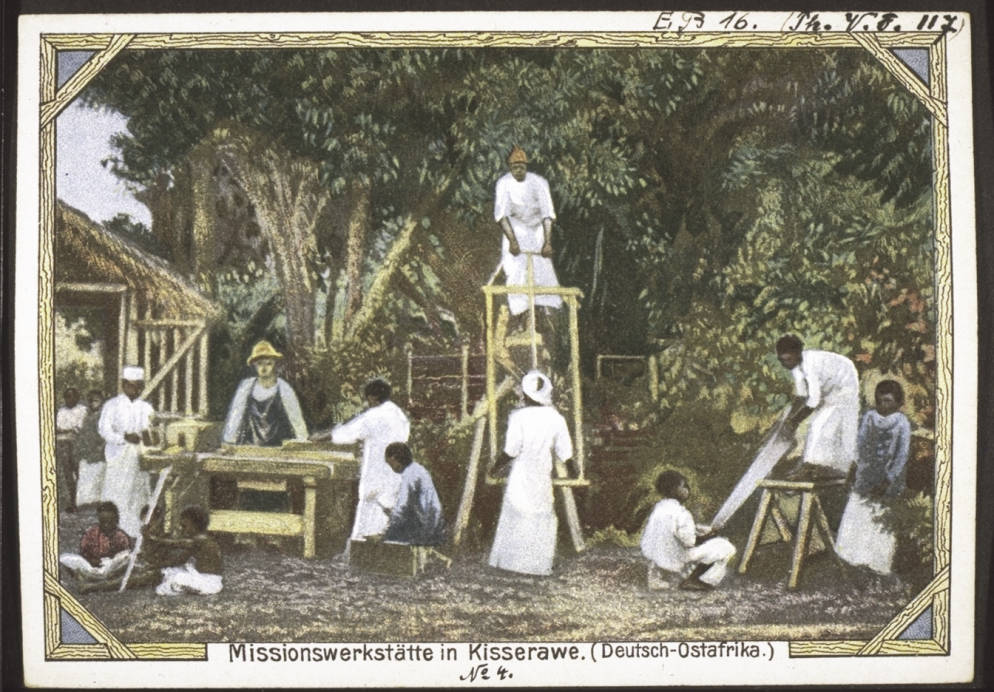Missionary societies were active in Germany’s colonies, as well as the holdings of other colonial empires. They played an important role in integrating these territories into networks dominated by European powers, but it is simplifying too far to say that they were simply agents of the colonial state. Their interest in the wellbeing of their potential converts could put missionaries at odds with the state and with white settlers, and their converts could use an ideology of Christian egalitarianism to advance their own interests both in the colonies and the metropole. Missionaries’ proselytizing efforts consisted of broader programs of education and social support designed to integrate converts into an international community of the faithful. At the same time, their activities were often shot through with racist condescension toward the populations they were trying to reach and change.
Postcards like this one provided a succinct encapsulation of the missionary project and its purported contribution to a broader civilizing mission. Note the link between prayer and labor, and the stated goal of helping the missions’ charges to develop independence on the mission’s terms. Central to this vision of autonomy is skilled craft work, which is understood to be an advance beyond the “primitive” crafts previously practiced. It will also prepare for a system of waged labor in communities linked into international trading networks. This message of Black subordination is reinforced in the image. Note the Black workers of various ages occupied in their carpentry work. The single white man stands out both because of his clothing and because he is the only person not engaged in labor. While the Black figures are hard at work he gazes out at the (presumably white) viewers, inviting them to identify with him as the overseer of this broad project and, perhaps, to contribute.
Postcards like this could be used to raise funds in churches for missionary work, to educate German school children on the colonial order, and to raise the missions’ profile among the general public.
Jeff Bowersox
DEUTSCH (coming soon)

Mission workshop in Kisserawe (German East Africa)
Text printed on the reverse side of the card:
Missionaries in non-Christian countries take the saying “work and pray” very seriously. They are not only concerned to see that the newly converted get accustomed to regular work, they also want to make sure the young men learn a craft skill. But primitive peoples, especially in Africa, only have the primitive crafts which stand at the beginnings of development, and so the missionaries find it necessary to start up workshops where young people learn a a useful craft or handwork like carpentry, blacksmithery, etc. With the assistance of people trained in this way the missionaries can then build their houses and churches. Such workshops are especially useful for freed slaves in German East Africa, because in this way these unhappy creatures are brought up to have a profession which makes them independent. The success of these efforts has been so pronounced up to now that the missionaries are adding more crafts and types of handwork to the list of those taught. That old text has shown itself to be true again: “Holiness can find benefit in everything.”
Source: “Mission Workshop in Kisserawa, German East Africa,” International Mission Photography Archive, University of Southern California.

Advertising mission projects in East Africa (before 1914) by Jeff Bowersox is licensed under a Creative Commons Attribution-ShareAlike 4.0 International License.
Permissions beyond the scope of this license may be available at https://blackcentraleurope.com/who-we-are/.